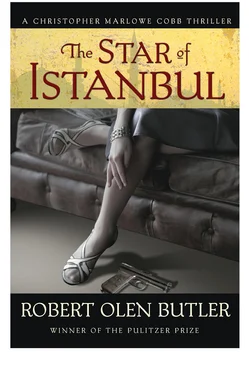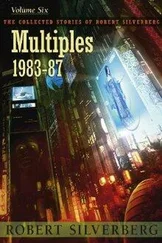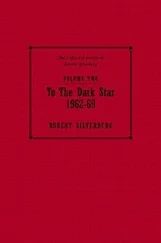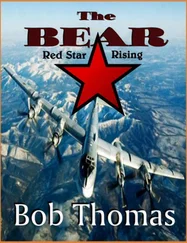We did dress, twice, once to eat another meal in the dining car with the landscape dark outside, and once scrambling into our clothes when the passport officials boarded the train at Teschen, on the Hungarian frontier, and they knocked on our door only to quickly click their heels and bow their way back out again in response to our German documents, two youngish men with immaculate Hungarian officer uniforms and large mustaches. Selene and I both noticed them exchanging a knowing little smile over these two lovers as they slid our door closed, which we laughed about much harder than it warranted, which revived our bodies a bit for one more tumbling and soft pounding before a good six hours of deep sleep wrapped in each other’s arms.
And then we were in Budapest.
And immediately before us were twenty-four hours to the Romanian port city of Constanţa.
We did not have to say more than a dozen words between us for us to decide that I would go to my own cabin now and close the door and we would not see each other again until we arrived on the shore of the Black Sea.
Which was what we did, across the Hungarian plains and over the pine-quilted Carpathian Mountains and all along the wheat and corn fields of Romania, a landscape that could easily have been Illinois except for the water-buffalo-powered plows.
And then we were on the SS Dacia, a 3,200-ton mail steamer of the Romanian State Railways doing the Black Sea run to Istanbul with 120 first-class cabins and two special cabins built to accommodate the women of a Turkish harem.
And we ended up once again in each other’s arms, this time in my cabin. In the first hour we made love, and it felt as if it was the last time Selene and I would ever make love, though that had become a routine feeling for me, an inevitable part of the act: from our almost tender commencing kiss, to her threat on my life if I didn’t keep going, to her final scream, to the cigarette afterward, to a voice in my head going I bet this is the last .
But on the Dacia, upon the Black Sea, there was a new coda to our jazz suite: we segued immediately into a close embrace burrowed deep beneath the sheet and blanket. And Selene wept.
Wept and trembled.
Silently for a while, and then she said, “I’m afraid.”
“It’s all right,” I said.
“This is the only time you’ll ever hear me say that,” she said.
“It’s natural.”
“I won’t feel it again either,” she said.
“You can.”
The ship pitched a little and she flinched.
“Is it about the ship?” I said.
“Partly.”
I said, “This is the first ship you and I have been on that’s not threatened by submarines.”
“Maybe that’s why I’m free to be afraid.”
I could understand this. Some of the best soldiers I knew felt their fear after the battle, not during it.
“That comes with being able to loosen your hold on your courage,” I said.
She held me more tightly.
Partly the ship, she’d said. I understood this as well. I myself was starting to feel a rat-toothed gnawing in my chest, in my throat.
Der Wolf was on his way. I was to meet someone at the Pera Palace who expected me to be Walter Brauer and therefore expected me to be an expert on Islam and to speak Turkish, skills Metcalf had failed to include in my leather portfolio. Just for a starter.
The sun had set outside our cabin window. When it rose again we would arrive in Istanbul and the curtain would go up on our final act.
We came down the Bosporus, which was narrow enough to look like a river and which, therefore, for a boy who knew rivers mostly by knowing the muddy Mississippi, looked shockingly blue. And Istanbul appeared on its hills as a bit of a shock as well. It mounted from the blue water draped with a good deal of tree-dense green, its stitching of Western buildings white in the lately risen sun and its profusion of mosque domes and minarets a pleasant geometric spangling in the broad sweep of the city.
As we drew near, though, previously overlooked swaths of brown in the tableau were clearer and more pervasive. These were the intense runs of dingy wooden houses along what we would soon learn were the city’s winding, labyrinthine streets, narrow and filthy and foul, fully purged only by the periodical burning down of whole neighborhoods of these houses, which would spring back up, instantly dingy and combustible once more.
And as we eased up to the quay at Galata, the minarets now seemed to me as profuse in Istanbul as smokestacks in Pittsburgh. And as definitive: they were the big business of this place. I took all this in — the impressions of this approach and arrival and mooring — while standing next to Selene at the railing of the Dacia , and just as I was beginning to revise my own first-vision impressions of this town, I felt her shudder. I wished she’d shuddered at the thought of Enver Pasha, but I guessed this city on top of all that was what finally got to her. At least to a shuddering extent.
When Selene and I stepped off the disembarkation launch into the Place Karakeuï, we discovered a man in full chauffeur livery standing beside a 1908 model Unic taxi, holding a sign for the Pera Palace. And so we found ourselves sitting shoulder to shoulder in the tonneau of the same model taxi that carried Selene before me to the London Docks. I did not speak to her of this little irony.
By my reckoning we had an option to go straight up the hill from the Galata Bridge, but we turned west and followed one of the limited number of main streets — though the Unic still bounced and groaned and swayed severely on the cobbles — and then we climbed the hill the back way to the European enclave of Pera, avoiding the twisted, narrow, rubble-cluttered streets for the sake of the hotel’s well-to-do Western guests. We passed through the shadow of the 14th century Galata Tower, which rose fifteen stories from the hillside, once a military structure but now a fire-watch station, with a high, Gothic gallery of round arches and on top of that a stack of three, diminishing flat-roofed cupolas.
Then we turned into the street the locals called Meşrutiyet Caddesi, but known within Pera itself as the Rue des Petits-Champs. The street cars were electric, the shops were elegant and mostly French, the cafés had tables on the sidewalk, and all the storefronts already had their awnings unfurled against the day’s sun, vast, rippling, white-cloth hangings looking like the backsides of Berber tents. The local men in business suits were indistinguishable in style from the men on Chicago’s State Street except they each wore a red fez.
And in the midst of all this, there was a rolling of metal wheels and the crackle of electricity bearing a reminder of the war: a tram passed us full of the vacant faces and bandage-swaddled arms and foreheads of wounded men being transferred, Turks up from Gallipoli.
I pressed toward the window to watch them pass and then looked forward to an abrupt contrast. Up ahead was the Pera Palace, the extreme version of this whole mission’s neoclassical motif, the style seeming more aridly aloof after seeing the boys from the battlefield. The hotel looked like a mostly unaltered stone box, registering on the eye about like a Jack Daniel’s shipping crate, but without the juice.
Just before it, we turned into a narrow, cobbled side street, traversing the short side of the hotel, and then turned again and stopped before the main entrance.
Selene and I stepped down from the cab, and a couple of young fezes in long, brass-buttoned, pigeon-gray uniforms rushed forward to deal with our bags. I put a hand lightly under Selene’s elbow to guide her the few paces across the sidewalk. But I caught a movement in my periphery to the right and I looked that way as a German officer, who had just stepped from a taxi behind us, took a stride in our direction.
Читать дальше












